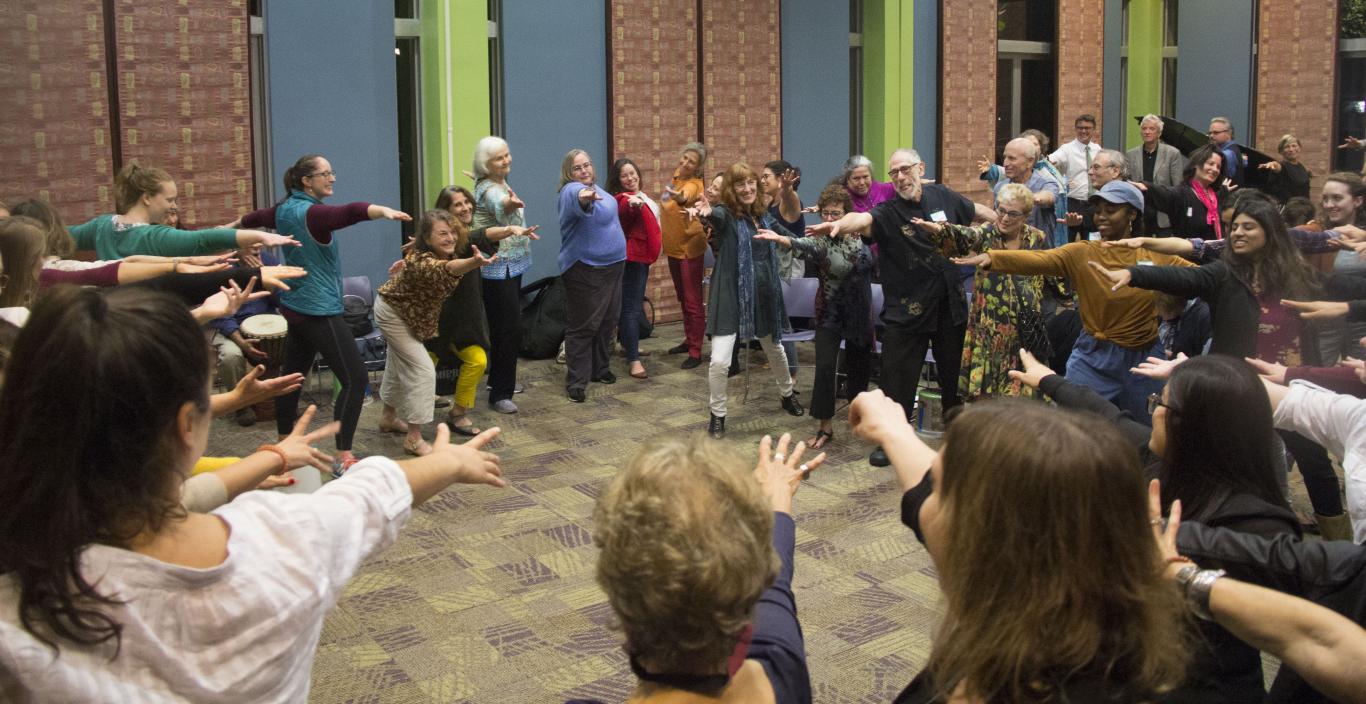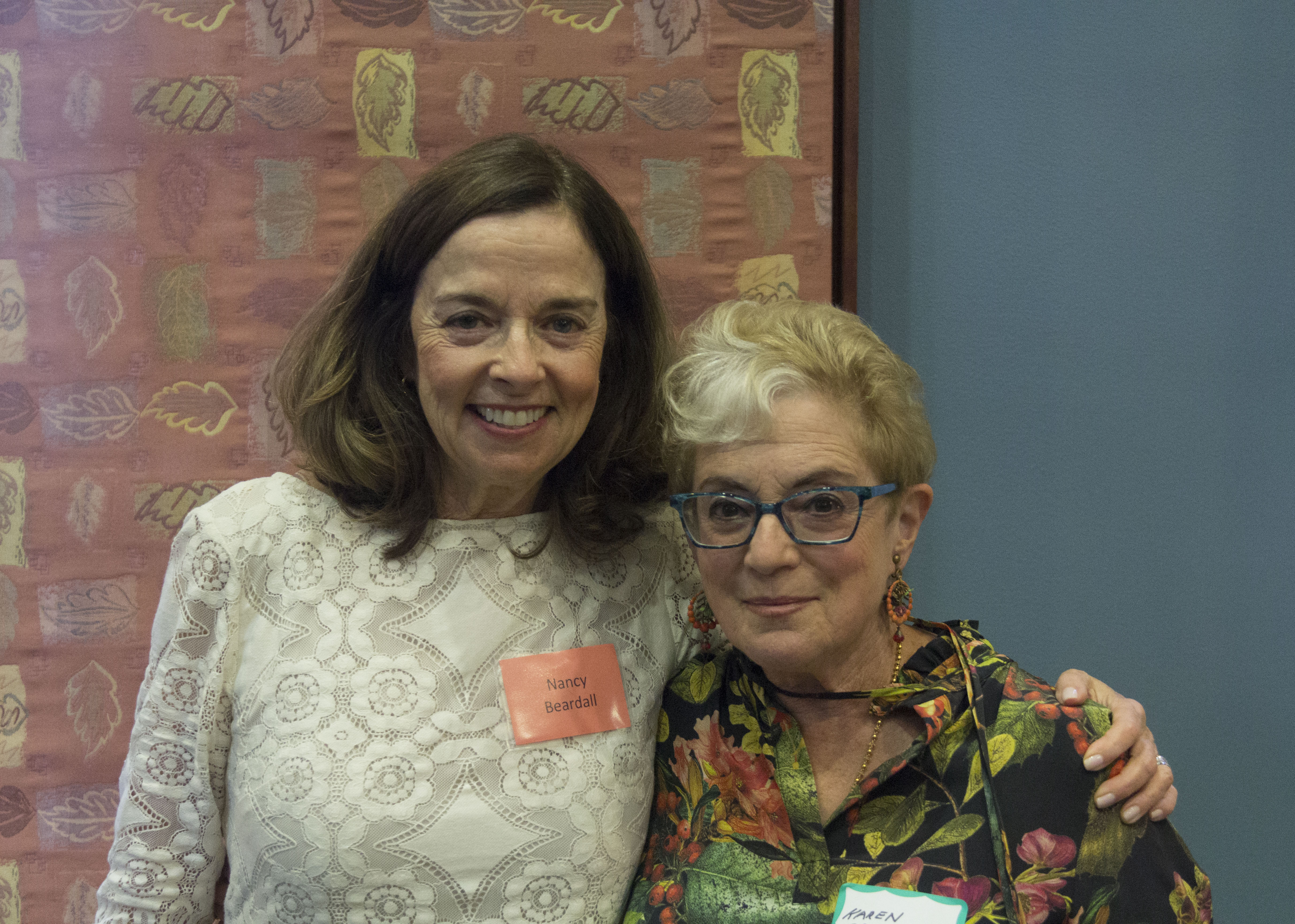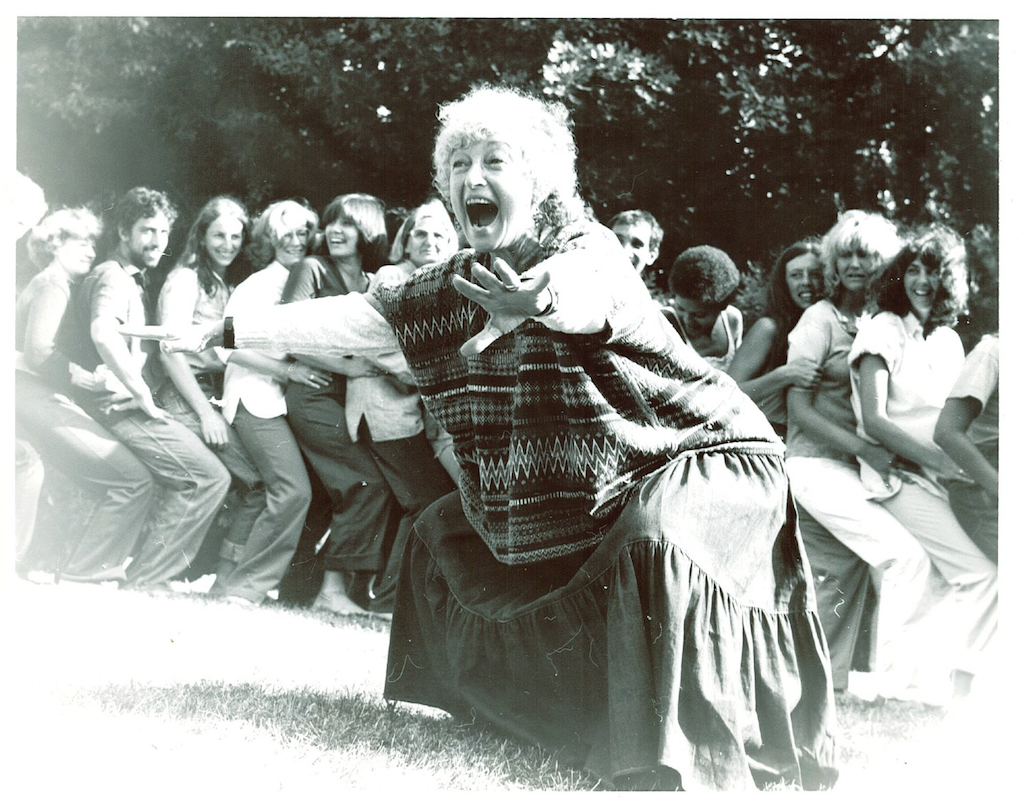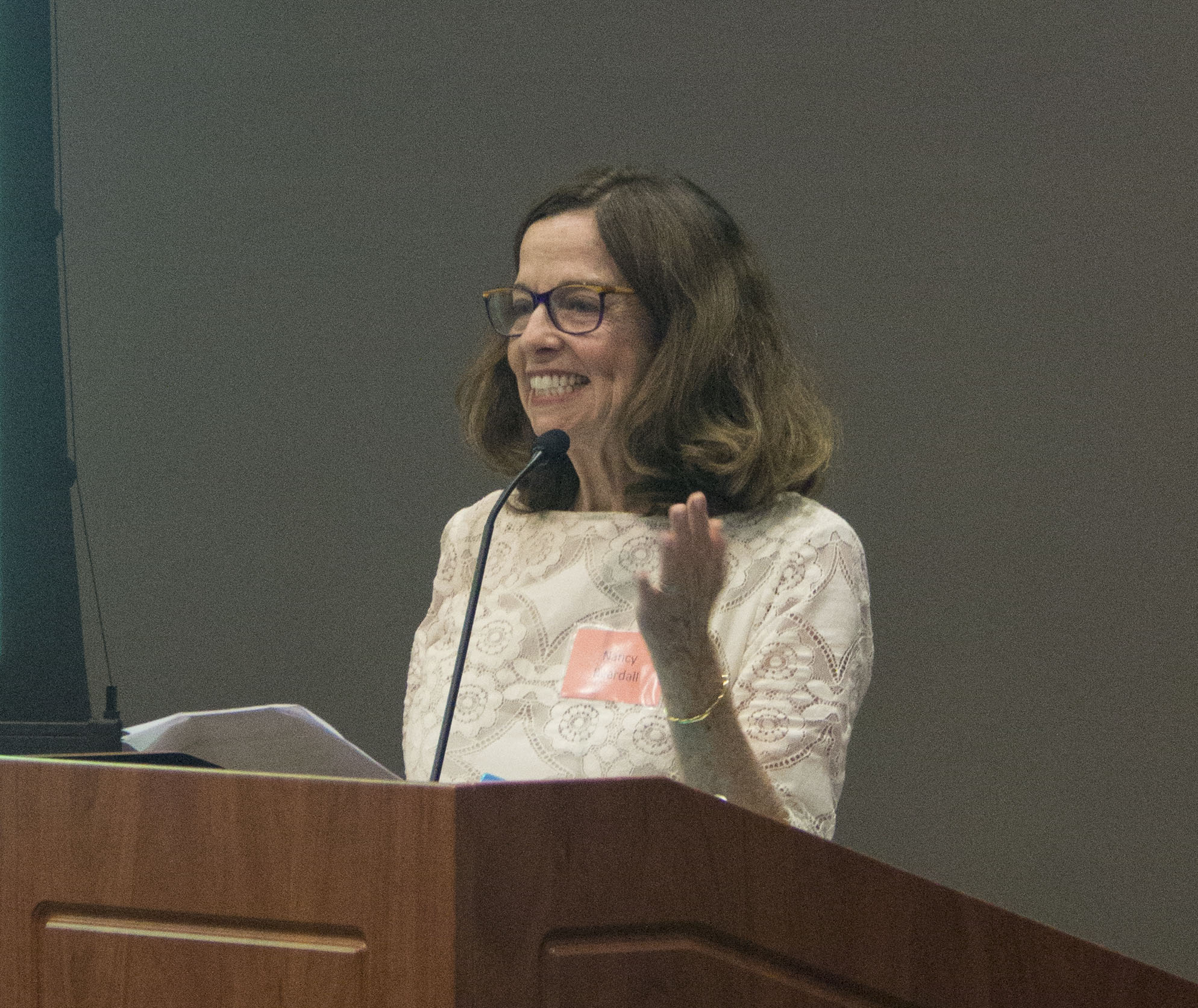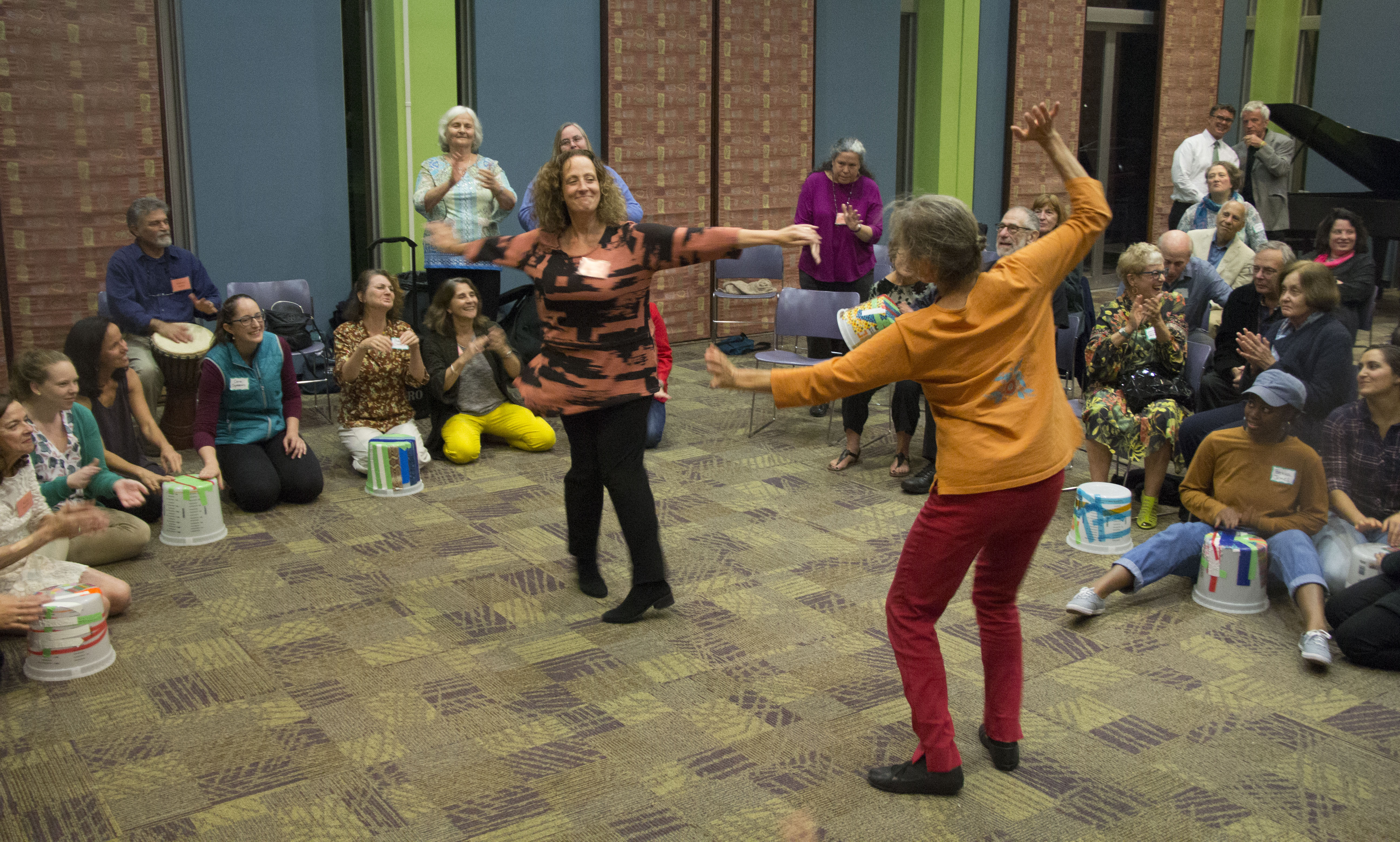Nearly 100 expressive therapists, students, former colleagues and other devotees celebrated the life and impact of the late Dance Movement Therapy icon Norma Canner Thursday night, on what would have been her 100th birthday.
Canner, who pioneered Lesley’s Dance Movement Therapy program in the early 1970s, was remembered by her former colleagues as well as Lesley faculty members and students who, though they might never have met her, understood Canner’s contribution to the university and beyond.
Canner’s daughter, visual artist Karen Canner Moss, spoke lovingly of her mother’s eclectic — if not eccentric — taste in home décor (including misprinted wallpaper “with off-kilter eyes”), her focus on instilling moral values and a respect for the creative process.
“She was rebellious and creative,” Moss said.
Though the Great Depression left Canner without the means to attend college, the Brookline, Mass., native traveled to New York to become an actress. Later, after meeting her husband (a Columbia student) and moving with him to Toledo, Ohio, she found a way to turn her creative spirit and her love of dance into a means of healing others.
Canner began working in an state hospital which, at the time, was little more than a warehouse for people with mental illness.
“It was medieval,” Moss said. “People in hospital johnnies walked around in circles all day.”
But Canner saw a way to help the patients, who had chronic schizophrenia, by getting them to move in ways that were creative, and ultimately therapeutic.
In the 1960s, her experience led her back to Massachusetts, where she launched movement programs in hospitals and began teaching at various Boston-area colleges. Then, in 1974, University Professor Shaun McNiff — himself an Expressive Therapies pioneer — brought her to Lesley.
“The first faculty member I tried to recruit was Norma Canner,” McNiff said, recalling the heady early 1970s filled with “madness, but love for all the people … you could do things you’d never dream of today.”
“God bless that era,” McNiff enthused. “It was an era of the unthinkable.”
The man who launched Lesley’s Expressive Therapies program then added, “Norma was an integral figure who brought us all together. She was the maestra!
“Norma taught me how movement is the basis of all forms of expression.”
Associate Professor Nancy Beardall, Lesley’s Dance/Movement Therapy coordinator and emcee of the evening, introduced visiting scholar Dr. Meg Chang, who called Canner one of the “founding mothers” of the specialization.
Other speakers included Dr. Vivien Marcow Speiser who spoke about her history of teaching and traveling with Norma to Israel, where Vivien launched Lesley’s Israeli Expressive Therapies program.
Elizabeth McKim, a former Lesley faculty member, jazz poet and spoken word artist, recited an embodied and rhythmic reading of a series of poems dedicated to Norma. The poetry is in McKim’s book, “The Red Thread.”
Following McKim, Anne Brownell, director of the Norma G. Canner Foundation for Voice Movement Therapy, spoke of her time with Canner personally and professionally, and the influence Norma had in her pursuing her own therapy specialization.
Then it was time to get moving. Faculty members Valerie Blanc and Shira Karman performed a dance choreographed by Beardall for Canner on the occasion of her receiving the American Dance Therapy Association’s (ADTA) Outstanding Achievement Award in 2001.
A closing dance and drum circle was led by Jennifer Wiles and accompanied by Dr. Mitchell Kossak and students on drums. Both Kossak and Wiles were students and former colleagues of Canner. Guests danced in and out of the circle, prompting Beardall to muse, later, “The joy and warmth of the moment was felt by all. Norma would have loved it.”
Beardall adds: “Norma’s legacy of creativity, discovery, community and inclusion are felt and passed on. The spirit of innovation at Lesley has followed her with many initiatives carried on by her students and their students.”
Donate to the Norma Canner Scholarship Fund: www.lesley.edu/give-today.
